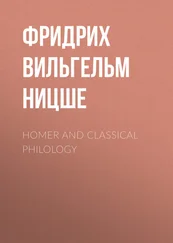Фридрих Ницше - Beyond Good and Evil
Здесь есть возможность читать онлайн «Фридрих Ницше - Beyond Good and Evil» весь текст электронной книги совершенно бесплатно (целиком полную версию без сокращений). В некоторых случаях можно слушать аудио, скачать через торрент в формате fb2 и присутствует краткое содержание. Год выпуска: 2014, Издательство: epubBooks Classics, Жанр: Философия, на английском языке. Описание произведения, (предисловие) а так же отзывы посетителей доступны на портале библиотеки ЛибКат.
- Название:Beyond Good and Evil
- Автор:
- Издательство:epubBooks Classics
- Жанр:
- Год:2014
- ISBN:нет данных
- Рейтинг книги:4 / 5. Голосов: 1
-
Избранное:Добавить в избранное
- Отзывы:
-
Ваша оценка:
- 80
- 1
- 2
- 3
- 4
- 5
Beyond Good and Evil: краткое содержание, описание и аннотация
Предлагаем к чтению аннотацию, описание, краткое содержание или предисловие (зависит от того, что написал сам автор книги «Beyond Good and Evil»). Если вы не нашли необходимую информацию о книге — напишите в комментариях, мы постараемся отыскать её.
Beyond Good and Evil — читать онлайн бесплатно полную книгу (весь текст) целиком
Ниже представлен текст книги, разбитый по страницам. Система сохранения места последней прочитанной страницы, позволяет с удобством читать онлайн бесплатно книгу «Beyond Good and Evil», без необходимости каждый раз заново искать на чём Вы остановились. Поставьте закладку, и сможете в любой момент перейти на страницу, на которой закончили чтение.
Интервал:
Закладка:
195. The Jews—a people "born for slavery," as Tacitus and the whole ancient world say of them; "the chosen people among the nations," as they themselves say and believe—the Jews performed the miracle of the inversion of valuations, by means of which life on earth obtained a new and dangerous charm for a couple of millenniums. Their prophets fused into one the expressions "rich," "godless," "wicked," "violent," "sensual," and for the first time coined the word "world" as a term of reproach. In this inversion of valuations (in which is also included the use of the word "poor" as synonymous with "saint" and "friend") the significance of the Jewish people is to be found; it is with THEM that the SLAVE–INSURRECTION IN MORALS commences.
196. It is to be INFERRED that there are countless dark bodies near the sun—such as we shall never see. Among ourselves, this is an allegory; and the psychologist of morals reads the whole star–writing merely as an allegorical and symbolic language in which much may be unexpressed.
197. The beast of prey and the man of prey (for instance, Caesar Borgia) are fundamentally misunderstood, "nature" is misunderstood, so long as one seeks a "morbidness" in the constitution of these healthiest of all tropical monsters and growths, or even an innate "hell" in them—as almost all moralists have done hitherto. Does it not seem that there is a hatred of the virgin forest and of the tropics among moralists? And that the "tropical man" must be discredited at all costs, whether as disease and deterioration of mankind, or as his own hell and self–torture? And why? In favour of the "temperate zones"? In favour of the temperate men? The "moral"? The mediocre?—This for the chapter: "Morals as Timidity."
198. All the systems of morals which address themselves with a view to their "happiness," as it is called—what else are they but suggestions for behaviour adapted to the degree of DANGER from themselves in which the individuals live; recipes for their passions, their good and bad propensities, insofar as such have the Will to Power and would like to play the master; small and great expediencies and elaborations, permeated with the musty odour of old family medicines and old–wife wisdom; all of them grotesque and absurd in their form—because they address themselves to "all," because they generalize where generalization is not authorized; all of them speaking unconditionally, and taking themselves unconditionally; all of them flavoured not merely with one grain of salt, but rather endurable only, and sometimes even seductive, when they are over–spiced and begin to smell dangerously, especially of "the other world." That is all of little value when estimated intellectually, and is far from being "science," much less "wisdom"; but, repeated once more, and three times repeated, it is expediency, expediency, expediency, mixed with stupidity, stupidity, stupidity—whether it be the indifference and statuesque coldness towards the heated folly of the emotions, which the Stoics advised and fostered; or the no–more–laughing and no–more–weeping of Spinoza, the destruction of the emotions by their analysis and vivisection, which he recommended so naively; or the lowering of the emotions to an innocent mean at which they may be satisfied, the Aristotelianism of morals; or even morality as the enjoyment of the emotions in a voluntary attenuation and spiritualization by the symbolism of art, perhaps as music, or as love of God, and of mankind for God's sake—for in religion the passions are once more enfranchised, provided that…; or, finally, even the complaisant and wanton surrender to the emotions, as has been taught by Hafis and Goethe, the bold letting–go of the reins, the spiritual and corporeal licentia morum in the exceptional cases of wise old codgers and drunkards, with whom it "no longer has much danger."—This also for the chapter: "Morals as Timidity."
199. Inasmuch as in all ages, as long as mankind has existed, there have also been human herds (family alliances, communities, tribes, peoples, states, churches), and always a great number who obey in proportion to the small number who command—in view, therefore, of the fact that obedience has been most practiced and fostered among mankind hitherto, one may reasonably suppose that, generally speaking, the need thereof is now innate in every one, as a kind of FORMAL CONSCIENCE which gives the command "Thou shalt unconditionally do something, unconditionally refrain from something", in short, "Thou shalt". This need tries to satisfy itself and to fill its form with a content, according to its strength, impatience, and eagerness, it at once seizes as an omnivorous appetite with little selection, and accepts whatever is shouted into its ear by all sorts of commanders—parents, teachers, laws, class prejudices, or public opinion. The extraordinary limitation of human development, the hesitation, protractedness, frequent retrogression, and turning thereof, is attributable to the fact that the herd–instinct of obedience is transmitted best, and at the cost of the art of command. If one imagine this instinct increasing to its greatest extent, commanders and independent individuals will finally be lacking altogether, or they will suffer inwardly from a bad conscience, and will have to impose a deception on themselves in the first place in order to be able to command just as if they also were only obeying. This condition of things actually exists in Europe at present—I call it the moral hypocrisy of the commanding class. They know no other way of protecting themselves from their bad conscience than by playing the role of executors of older and higher orders (of predecessors, of the constitution, of justice, of the law, or of God himself), or they even justify themselves by maxims from the current opinions of the herd, as "first servants of their people," or "instruments of the public weal". On the other hand, the gregarious European man nowadays assumes an air as if he were the only kind of man that is allowable, he glorifies his qualities, such as public spirit, kindness, deference, industry, temperance, modesty, indulgence, sympathy, by virtue of which he is gentle, endurable, and useful to the herd, as the peculiarly human virtues. In cases, however, where it is believed that the leader and bell–wether cannot be dispensed with, attempt after attempt is made nowadays to replace commanders by the summing together of clever gregarious men all representative constitutions, for example, are of this origin. In spite of all, what a blessing, what a deliverance from a weight becoming unendurable, is the appearance of an absolute ruler for these gregarious Europeans—of this fact the effect of the appearance of Napoleon was the last great proof the history of the influence of Napoleon is almost the history of the higher happiness to which the entire century has attained in its worthiest individuals and periods.
200. The man of an age of dissolution which mixes the races with one another, who has the inheritance of a diversified descent in his body—that is to say, contrary, and often not only contrary, instincts and standards of value, which struggle with one another and are seldom at peace—such a man of late culture and broken lights, will, on an average, be a weak man. His fundamental desire is that the war which is IN HIM should come to an end; happiness appears to him in the character of a soothing medicine and mode of thought (for instance, Epicurean or Christian); it is above all things the happiness of repose, of undisturbedness, of repletion, of final unity—it is the "Sabbath of Sabbaths," to use the expression of the holy rhetorician, St. Augustine, who was himself such a man.—Should, however, the contrariety and conflict in such natures operate as an ADDITIONAL incentive and stimulus to life—and if, on the other hand, in addition to their powerful and irreconcilable instincts, they have also inherited and indoctrinated into them a proper mastery and subtlety for carrying on the conflict with themselves (that is to say, the faculty of self–control and self–deception), there then arise those marvelously incomprehensible and inexplicable beings, those enigmatical men, predestined for conquering and circumventing others, the finest examples of which are Alcibiades and Caesar (with whom I should like to associate the FIRST of Europeans according to my taste, the Hohenstaufen, Frederick the Second), and among artists, perhaps Leonardo da Vinci. They appear precisely in the same periods when that weaker type, with its longing for repose, comes to the front; the two types are complementary to each other, and spring from the same causes.
Читать дальшеИнтервал:
Закладка:
Похожие книги на «Beyond Good and Evil»
Представляем Вашему вниманию похожие книги на «Beyond Good and Evil» списком для выбора. Мы отобрали схожую по названию и смыслу литературу в надежде предоставить читателям больше вариантов отыскать новые, интересные, ещё непрочитанные произведения.
Обсуждение, отзывы о книге «Beyond Good and Evil» и просто собственные мнения читателей. Оставьте ваши комментарии, напишите, что Вы думаете о произведении, его смысле или главных героях. Укажите что конкретно понравилось, а что нет, и почему Вы так считаете.












